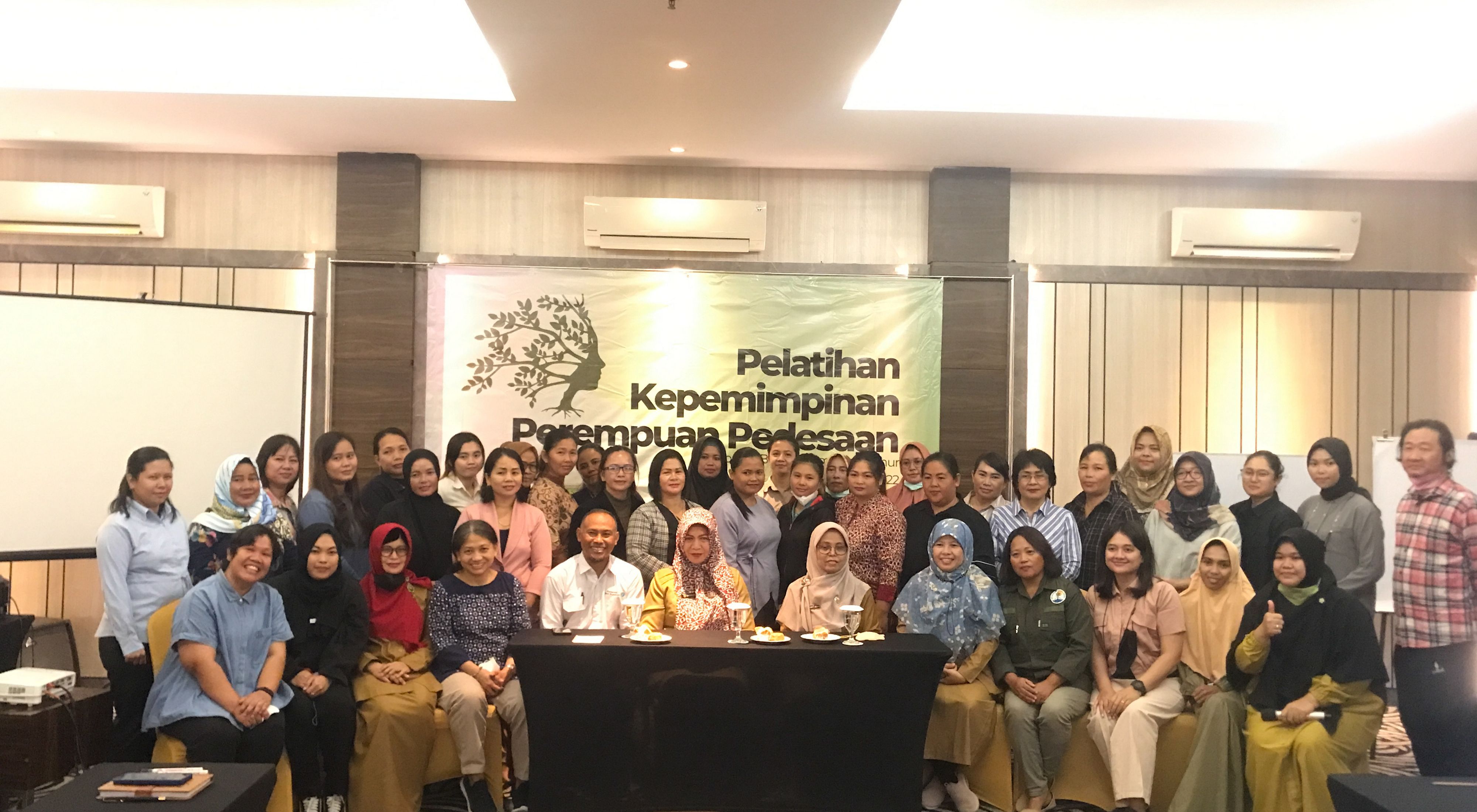Media Contacts
-
Retno Dianing Sari
Content and Publication Specialist YKAN
Email: Retno.dianingsari@ykan.or.id
East Kalimantan Province still needs to encourage Gender Mainstreaming with the collaboration of various sectors considering that there are still gender inequalities in women's participation in development policies. Berau Regency is one of the regencies that, based on data from the Central Statistics Agency in 2021, has a Gender Development Index (IPG) of 87.76 from a maximum standard of 100. This figure shows the quality of life (health, education, economy) of women in Berau is relatively high. Unfortunately, this high quality of life is not accompanied by the Gender Empowerment Index (IDG), which stands at 56.48. The IDG represents women's participation in the economy, politics, and decision-making.

"The lack of representation of women as leaders makes organizations and institutions less oriented to women's perspectives so that it affects the formulation of policies that are not in favor of women," said Rabiatul Islamiah, Head of the Family Planning Population Control Service, Women's Empowerment and Child Protection (DPPKBP3A) Berau, East Kalimantan, in his remarks on "Rural Women's Leadership Training" in Tanjung Redeb, Berau, on Tuesday, August 23, 2022.
"Women need to be empowered because their voices determine the direction of development where they work," said Rabiatul, who appreciated the training for these women. The training participants, representatives from 26 villages in Berau and East Kutai Regencies, will learn and discuss gender equality and leadership. For three days (23-25 August 2022), they will learn about sex and gender issues; forms of gender inequality; women's leadership in daily life; barriers and strategies in building women's leadership; community-based natural resource management; strategic steps in making women's leadership; group dynamics and leadership; and cooperation with the parties. "This training is a new thing for Berau, and I hope there will be feedback from this training. Hopefully, this training will make Berau women better," said Rabiatul.
The training activity, a collaboration between Yayasan Konservasi Alam Nusantara (YKAN) and the Young Indonesian Forest Foresters in Bogor, is the first step to encouraging PUG in development, especially for sustainable use and management of natural resources. "This training is the first step in building gender equality awareness where women and men have equal rights in access, participation, control, and benefits from development in various sectors," said Merry Tobing, Gender, and Livelihood Specialist YKAN. Attendees are expected to understand better women's equal participation in the economy, politics, and decision-making. The hope is that women's voices, women's problems, and women's needs can be accommodated, which are actualized in programs and budgeting in their villages.

The Ministry of Women's Empowerment and Child Protection (KPPA) identified four obstacles faced by women to participate in politics, namely (a) Cash related to capital, welfare, and poverty; (b) Childcare which relates to their responsibilities for children, parents, and even sick people in the family; (c) Culture which relates to the rules of the game from politics which men dominate; and (d) Confidence related to women's limited access to public spaces (KPPA, 2015).
Women are vulnerable parties in the climate crisis with responsibilities in the family. Women's multi-role makes her vulnerable because, in the family, she acts as a producer and provider of food, health care, caregivers, and financial regulators (Report of The Women's Environment and Development Organization, 2008).

YKAN encourages the birth of women leaders from rural areas who can formulate their leadership vision to be actualized and inspire the emergence of strong female leaders. "We hope that more women take on leadership roles. " In village development, social activities, economic development, and sustainable natural resource management," said Merry.
Women need to participate in environmentally friendly development policies so that development policies can be gender-responsive.
Yayasan Konservasi Alam Nusantara (YKAN) is a scientific-based non-profit organization that has been present in Indonesia since 2014. With the mission of protecting lands and waters as life support systems, we provide innovative solutions to realize the harmony of nature and humans through effective natural resource management, prioritizing a non-confrontational approach, and building a network of partnerships with all stakeholders for a sustainable Indonesia. For more information, visit ykan.or.id.


